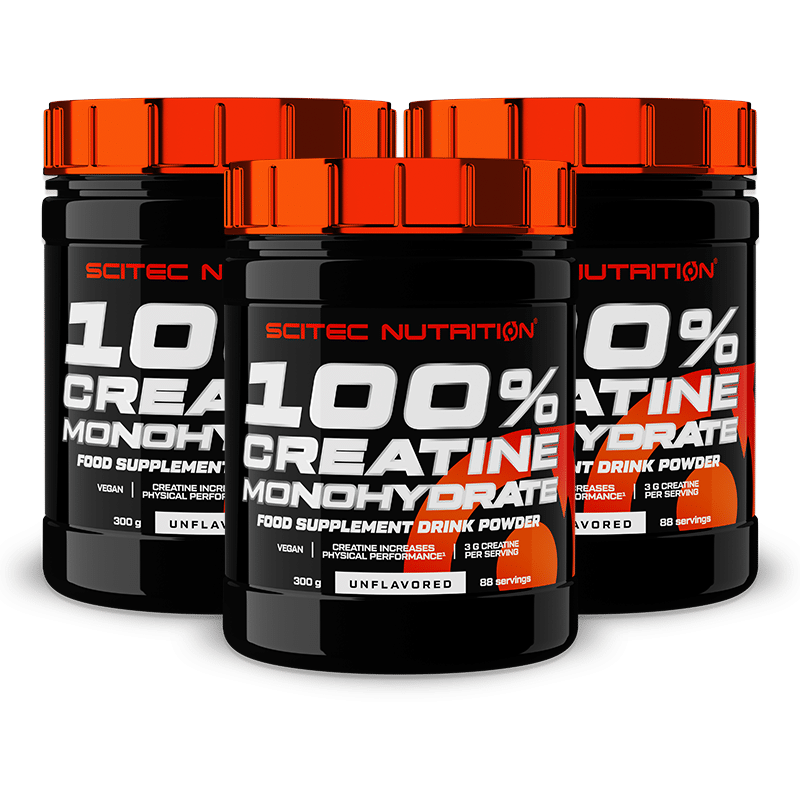Creatine supplementation has become a household name in the fitness and athletic communities. It’s a staple in the world of sports nutrition and is embraced by bodybuilders, athletes, and fitness enthusiasts alike. Walk into any gym, and you’re likely to find someone with a shaker bottle filled with creatine. So, what’s behind this widespread popularity?

Creatine is more than just a supplement; it’s a revolution in muscle building. Find yours here.
Amid the buzz surrounding creatine, a fundamental question persists: Does creatine work as advertised? Is it truly the game-changer it’s often hailed to be, or is it just another supplement with lofty promises? These questions often leave individuals considering creatine supplementation in a state of uncertainty.
In this comprehensive blog post, we embark on a journey to unravel the mystery surrounding creatine supplementation. Our mission is to provide you with a well-rounded understanding of this popular supplement, its mechanisms of action, and the scientific evidence behind its effectiveness. We aim to address the age-old query—does creatine work? By the end of this exploration, you’ll be equipped with the knowledge needed to make informed decisions about whether creatine is the right choice for your fitness journey.
Join us as we delve into the science, benefits, considerations, and real-life experiences related to creatine supplementation. Whether you’re an athlete looking to gain a competitive edge, a weightlifter aiming for muscle growth, or someone merely curious about the potential of this supplement, we’ve got you covered.
Let’s uncover the truth about creatine and whether it can indeed live up to the hype.
Creatine is a naturally occurring compound found primarily in the muscles and brain. Chemically, it is a nitrogenous organic acid that plays a crucial role in energy metabolism.
Creatine is synthesized within the human body, primarily in the liver, kidneys, and pancreas. It is then transported to the muscles and brain through the bloodstream.
Creatine’s central role in the body is to contribute to the production of adenosine triphosphate (ATP), a molecule that serves as the primary energy currency in cells. Creatine helps regenerate ATP during high-intensity, short-duration activities, such as weightlifting and sprinting.

Protein powder is a key component in any nutrition plan. Find yours here.
When it comes to creatine supplementation, understanding the loading and maintenance phases is crucial. Initially, many opt for a loading phase, where higher doses of creatine are consumed to quickly saturate the muscles’ creatine stores. This phase typically involves taking about 20 grams of creatine per day, divided into four 5-gram servings, for 5-7 days. Following this, you transition into the maintenance phase for long-term use, where a daily intake of 3-5 grams is recommended to keep your muscle creatine stores at an optimal level. This two-phase approach is designed to maximize the muscle-building and performance-enhancing benefits of creatine.
Dosage plays a key role in the effectiveness of creatine supplementation. Based on extensive research and expert recommendations, a standard dose of 3-5 grams daily during the maintenance phase is generally effective for most individuals. It’s important to note that individual needs may vary, and factors like body weight, metabolic rate, and activity level can influence the optimal dosage.
The timing of creatine intake can also impact its effectiveness. While there’s ongoing debate about the best time to take creatine, common strategies include consuming it pre-workout for increased energy and post-workout for improved recovery. Some evidence suggests that taking creatine close to your workout time, either before or after, may offer the most benefits. It’s also advisable to take creatine with a meal or carbohydrate source to enhance its uptake and utilization by the muscles.
While creatine is considered safe for most people, it’s not without potential side effects. Some individuals may experience gastrointestinal discomfort, muscle cramping, or minor water retention. These side effects are generally mild and can often be managed by adjusting the dosage or timing of intake. Staying well-hydrated is also important when taking creatine, as it can help mitigate some of these effects.
Creatine supplementation has been surrounded by misconceptions, particularly concerning its impact on kidney and liver health. However, extensive research has shown that creatine is safe for healthy individuals and does not cause harm to these organs. It’s always important to consult with a healthcare provider if you have pre-existing health conditions or concerns.
To ensure safe and responsible use of creatine, it’s essential to follow recommended dosages and consider any personal health factors. Regular hydration, a balanced diet, and monitoring for any adverse reactions are key. If you have any underlying health conditions or are taking medication, consulting with a healthcare professional before starting creatine is advisable.
Creatine supplementation has been subject to various myths, such as causing dehydration or muscle cramps. Scientific evidence, however, does not support these claims. It’s important to differentiate between anecdotal reports and scientifically-backed facts when considering creatine use.
We’ll delve into the scientific evidence behind creatine, examining and dispelling the myths while highlighting the substantiated benefits and considerations. This objective analysis will help clarify the true nature of creatine supplementation.
In this blog post, we’ve explored the science, benefits, and considerations surrounding creatine supplementation. By understanding both the facts and the myths, you can make an informed decision about whether creatine aligns with your fitness and health goals.

Are you ready to take your training to the next level? Find your BCAA here.
After a thorough exploration of creatine supplementation, it’s time to address the burning question: Does creatine work? The answer is a resounding yes. Creatine is one of the most extensively studied and scientifically supported supplements in the world of sports nutrition. It has demonstrated its effectiveness in enhancing exercise performance, promoting muscle growth, and even potentially benefiting cognitive function.
While the verdict is clear, it’s essential to approach creatine supplementation with informed decision-making. Consider the following factors:
By making informed choices and understanding the science behind creatine, you can harness its potential to enhance your fitness journey.
Recommended Readings on Creatine’s Effectiveness
© 2024 Only Approved – Designed by Aveo web&marketing
Socials
Socials